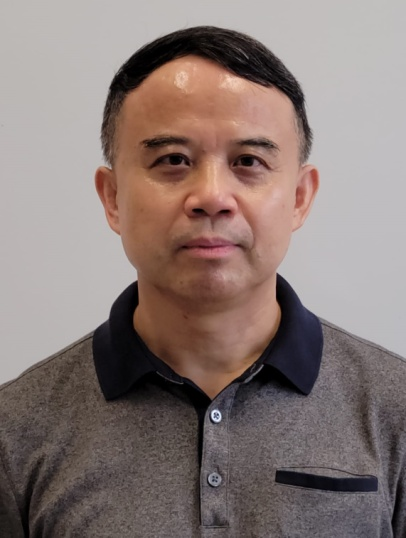 |
Title: Machine Learning: From Concepts to Deployment: A Perspective of Granular ComputingWitold PedryczProfessor, University of Alberta, CanadaURL: http://www.ece.ualberta.ca/~pedrycz/ Talk Abstract: Recent years saw a rapidly growing interest in large group decision-making models. The key components of decision processes such as alternatives, criteria (and their conflicting character), weights, and ranking mechanisms are studied with intent of delivering sound ranking completed in the presence of information granularity that are inherently encountered in decision scenarios. Along with knowledge elicited from decision makers, data are of paramount interest and relevance to the design methodology and algorithms realizing decision processes. We advocate that in numerous scenarios of large group decision processes both domain knowledge and data have to be involved in the formation of decision models. Each alternative characterized by some criteria is associated with data describing the decision environment. Aiming at meeting the key objective of coping with knowledge and data, we develop clustering algorithms operating in a heterogeneous data-knowledge environment embracing numeric, nominal, and ordinal attributes. It is shown how the mapping of ordinal attributes is optimized and how the underlying minimized objective function becomes minimized with the aid of gradient-based and population-based optimization methods. A detailed interpretation of produced clusters is provided and a way of decision-making realized in incomplete information is delivered. The augmented clustering method is also proposed to address a challenging issue of consensus reaching. The concept of stability of rule-based models is introduced and we elaborate on the role of ordinal and nominal variables in the conceptualization of interpretability of these Machine Learning architectures. |
 |
Title: 数据与知识双驱动的油气智能大模型: 盖亚大模型Zhangxing ChenProfessor,宁波东方理工大学 / University of CalgaryURL: https://schulich.ucalgary.ca/contacts/zhangxing-john-chen Talk Abstract: 工业软件是整个中国工业体系中最为薄弱的环节,我国工业软件研发和应用远落后西方发达国家,80%以上关键技术软件依赖于国外进口,是当前最为卡住我们脖子的关键技术。尤其新一轮以GPT和SORA为代表的生成式人工智能大模型,正引领数字化转型、智能化发展的潮流。人工智能时代带来的伟大变革是深刻且广泛的,从底层技术革新到社会结构的重塑,从经济形态的转变到人们日常生活的细微之处,几乎无处不在。谁能赢得人工智能技术,谁就能引领未来科技创新。但工业软件, 尤其智能大模型的研发和应用,面临算力、存储及可解释性的极大挑战。本报告将介绍工业软件、数据驱动机器学习、融合物理和数据驱动机器学习以及未来地学领域人工智能大模型技术现状、面临的挑战与发展前景,重点介绍本研究团队研发的平行油藏数值模拟技术和油气领域知识与数据双驱动智能大模型: 盖亚大模型。 |
 |
Title: The Role of Neutrality in Discovering Simple SolutionsTing HuProfessor, Department of Computer Science, Memorial University, CanadaURL: https://www.cs.queensu.ca/people/Ting/Hu Talk Abstract: This talk explores the role of neutrality in guiding evolutionary search towards simpler solutions. Simplicity and symmetry are common in nature, and understanding how evolutionary mechanisms favor such patterns can offer insights into the development of more efficient, interpretable models in artificial intelligence. We analyze complexity through Kolmogorov complexity and probability estimates, examining how genotype-phenotype mappings in genetic programming are influenced by neutral code. Our study demonstrates a simplicity bias, where less complex phenotypes are more likely to emerge due to redundancy in genotypic representations. Using Search Trajectory Networks (STNs), we visualize evolutionary search paths, revealing that abundant, simple phenotypes are revisited frequently. This work highlights the power of neutrality as a guiding force in evolution and its implications for designing algorithms that harness this simplicity bias effectively. |
 |
Title: Two Most Effective Numerical Methodologies for Linear and Nonlinear Inverse ProblemsJun ZouDepartment of Mathematics, The Chinese University of Hong KongURL: https://www.math.cuhk.edu.hk/people/academic-staff/zou Talk Abstract: This talk will review the up-to-date developments of two most effective numerical methodologies, the direct sampling-type methods and the adaptive-type methods, for solving general inverse problems, including the necessity and effectiveness of the methods as well as their applications to some typical linear and nonlinear inverse problems. |
 |
Title:基于深度强化学习的组合优化Feng WangSchool of Computer Science, Wuhan UniversityURL: https://cs.whu.edu.cn/info/1019/2940.htm Talk Abstract: 近几年,基于深度强化学习的组合优化问题求解成为组合优化领域研究的热点。报告介绍目前基于深度强化学习的组合优化求解方法的研究现状,针对现有方法在不同规模组合优化问题上的求解精度不足、模型训练难的问题,介绍几种基于端到端的组合优化求解方法,提升求解的收敛性和多样性的同时降低计算开销。 |
 |
Title: Enhancing Large Language Models through Improved Pre-Training and Fine-TuningJames Tin-yau KWOK (郭天佑)Department of Computer Science and Engineering, The Hong Kong University of Science and TechnologyURL: https://home.cse.ust.hk/~jamesk/ Talk Abstract: Large language models (LLMs) are commonly used in various natural language processing and vision-language modeling tasks. However, pre-training and fine-tuning of LLMs are still challenging. For pre-training, as it is typically performed in an unsupervised manner, information that are semantically irrelevant may negatively affect downstream tasks, leading to negative transfer. For fine-tuning, while the use of prompts has shown to be effective on downstream tasks with limited labeled samples, prompt design is still difficult. Moreover, while multiple fine-tuned models can be combined to form a ``model soup" with improved performance, learning this soup requires substantial memory and time. In this talk, we propose several measures to tackle these issues. First, we introduce a new pre-training method that trains each expert with only semantically relevant data through cluster-conditional gates. This allows downstream tasks be allocated to customized models pre-trained on data most similar to the downstream data. Second, on prompt tuning, we use meta-learning to learn an efficient prompt pool that can extract diverse knowledge from historical tasks. This allows instance-dependent prompts to be constructed from the pool without tuning the whole LLM. Finally, to reduce the computational costs of learning the model soup, we propose an efficient hyperplane optimization formulation and also use block coordinate gradient descent to further reduce the complexity. Experimental results show that these measures can significantly improve the performance of LLMs, and allow the model soup to be learned on a single GPU. |
 |
Yong LiuThe University of Aizu, JapanURL: https://u-aizu.ac.jp/research/faculty/detail?cd=90020&lng=en Bio: Yong Liu is currently a professor at the University of Aizu, Japan. He was a guest professor in School of Computer Science, the China University of Geosciences, China, 2010. He was a researcher fellow at AIST Tsukuba Central 2, National Institute of Advanced Industrial Science and Technology, Japan, in 1999, and a lecturer in the State Key Laboratory of Software Engineering, Wuhan University, in 1994. His research interests include evolutionary computation and neural networks. He has over 150 publications in the technical literature with 11653 citations counted by Google Scholar. He is one of co-authors for the book "Non-numerical Parallel Algorithms (II): Genetic Algorithms" by Science Press, Beijing. He is also one of co-editors for 18 volumes published by Springer. He was the Program Co-Chair of the 4th and the 7th International Conference on Evolvable Systems: From Biology to Hardware (ICES 2001 and ICES 2007), Program Co-Chair of the past 9 events of International Symposium on Intelligence Computation and Applications (ISICAs) from 2007 to 2018, Program Co-Chair of the first International Workshop on Aware Computing (IWAC 2009) and the second International Symposium on Aware Computing (ISAC 2010), Program Co-Chair of the 13th and 15th International Conference on Natural Computation, Fuzzy Systems and Knowledge Discovery (ICNC-FSKD 2017 and 2019). |